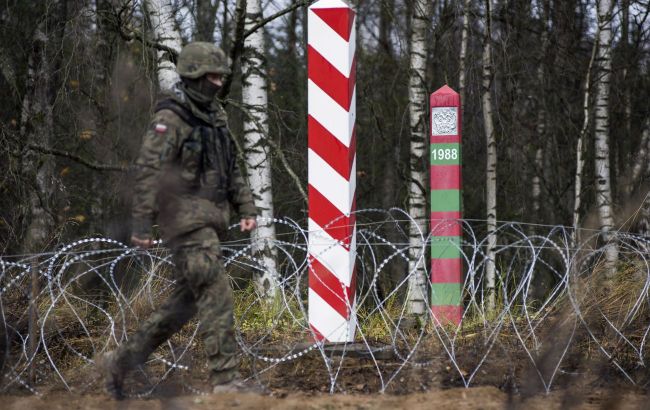Poland reduces migrants flow from Belarus by threatening to close Chinese exports
 Illustrative photo (Getty Images)
Illustrative photo (Getty Images)
Poland has threatened to block a key rail route for exporting Chinese goods to the European Union as part of a diplomatic strategy to address the migration crisis on its eastern border, according to Bloomberg.
President Andrzej Duda used his state visit to Beijing in late June to link the issues of migration and freight transit through the Belarusian border, according to sources familiar with the negotiations. Since then, the number of illegal border crossings from Belarus to Poland has significantly decreased.
For the past three years, Alexander Lukashenko has been attempting to create a severe migration situation along the 400-kilometer border with Poland. Tensions escalated in May when a Polish border guard was attacked and killed by a migrant, prompting the government in Warsaw to pledge about $2.5 billion to strengthen the area.
Lukashenko has also found a diplomatic pressure point. With Russia's invasion of Ukraine disrupting trade routes, Belarus became the sole rail link for Chinese goods heading to the EU, with container volumes increasing by 89% in the first quarter of 2024.
Lukashenko was pleased with the growth in Chinese rail transit, seeking to compensate for Belarus's near-total dependence on Russia for cheap energy and loans.
After Duda returned from Beijing on July 2, Poland made it clear that it would effectively shut down rail transit through the Malaszewicze checkpoint on the Belarusian border for 33 hours, slowing customs checks.
Poland's use of freight transit in negotiations with China could be a factor in reducing the number of border crossings after Duda's visit, Foreign Minister Radosław Sikorski told Bloomberg. "We are still very angry about the killing of our soldier on the border," he said.
China's involvement
Attempts to breach Poland's border have fluctuated over the years but began to rise sharply in the weeks before the European Parliament elections in June. Polish Prime Minister Donald Tusk said that migrants were mainly from Yemen, Somalia, Afghanistan, Syria, and Iran, and accused Belarus and Russia of weaponizing migration.
The Polish president's trip to China caught Lukashenko's attention. In his speech on July 2, he said that Duda "asked Xi Jinping to influence Lukashenko and Putin so that they would end migration."
In response to a Bloomberg News inquiry on July 11, China's Ministry of Foreign Affairs said Beijing "hopes that relevant parties can properly resolve differences through dialog" and "ensure the security and smoothness of international logistics channels."
Illegal border crossings from Belarus decreased by 70% since early June, Interior Minister Tomasz Siemoniak said. Over a hundred such incidents were recorded by Polish border guards on June 27, the last day of Duda's state visit.
Konrad Popławski of the Centre for Eastern Studies, a Warsaw-based think tank, believes that even if only a small part of China's exports to the EU goes through Belarus, the shipping crisis in the Red Sea and its impact on maritime trade means that Eurasian rail connections are experiencing a revival.
Warsaw's successful use of strategic vulnerability against China could serve as a lesson for policymakers. Beijing, which Popławski described as a "trade partner but also a competitor and systemic rival," may change its tactics if the bloc "is ready to bear economic costs" when its core interests are at stake.
Also, Poland and the Baltic countries have proposed that the EU build a 700-kilometer defense line on the border with Russia and Belarus to protect the EU from military and hybrid threats.

